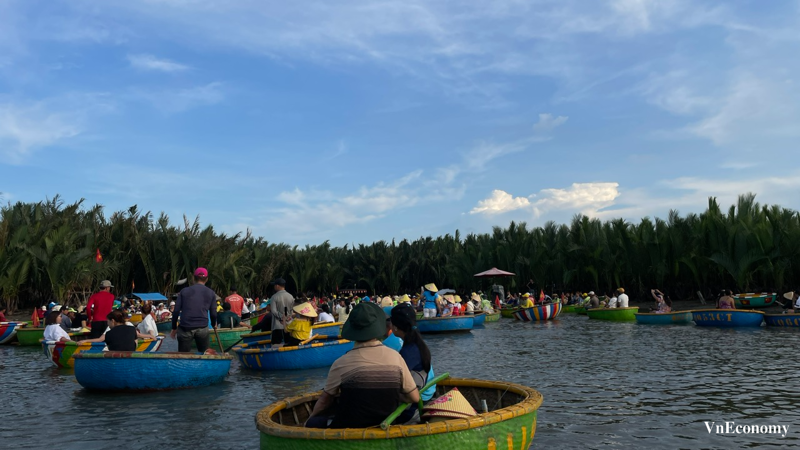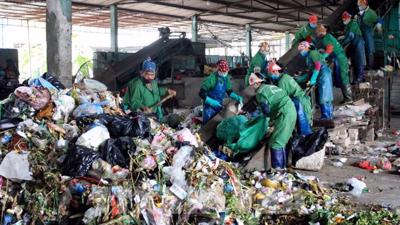For a sustainable tourism
Many tourism operators have begun to see the potential in offerings that consciously do more to address the damage their industry causes.

The World Tourism Organization (UNWTO) has defined sustainable tourism as balancing economic development with environmental protection. This involves using resources in a manner that benefits local communities while minimizing any impact on the natural environment and cultural-social elements. Nonetheless, the development of sustainable tourism has not fully addressed issues like natural degradation, climate change, and biodiversity loss.
For future generations
The tourism industry requires a new approach that not only minimizes any negative impact but also consistently creates positive effects to counteract natural degradation. One approach, regenerative tourism, is simply about making destinations better after each visit. This concept first appeared in an analysis from Ms. Anna Pollock, a researcher and strategist for global tourism organizations, at the onset of Covid-19, which highlighted long-standing unresolved issues.
Ms. Pollock likened tourism exploitation to harvesting from an orchard. If we only focus on the harvesting, the trees will eventually wither and die. Sustainable tourism is therefore akin to using revenue from visitors to buy fertilizer to care for and improve the orchard. Regenerative tourism takes it a step further, by planting seeds from harvested fruit into the orchard’s soil, growing new trees and ensuring they bear fruit for future generations. Australia’s Sydney Morning Herald described regenerative tourism as the “new frontier”, with an emphasis on experiences that remove more carbon from the atmosphere than is produced.
Tourism currently accounts for some 8 per cent of global carbon emissions, a figure that should compel us to consider why we travel and what we do upon arrival. Engaging in regenerative travel can be highly effective, because it aims to build a closer and deeper connection with a specific place beyond mere transactions and spending. From cultural preservation trips and wilderness restoration to camping and tree planting, such activities play a significant role in enhancing the future world.
In Vietnam, the concept of regenerative tourism has been taking root for several years, gaining positive support from travel companies, local residents, and tourists alike. For example, Vietravel has launched its “For a green, clean tourism environment” campaign in various cities and provinces, while Saigontourist has successfully run its “Each tourist plants a tree for Da Lat” tours. These and similar travel offerings commonly attract young people, both from within Vietnam and abroad.
On Phu Quoc Island, off Vietnam’s Mekong Delta coast, the “Clean and Green Phu Quoc” group has encouraged visitors to volunteer picking up trash on its beaches for proper disposal. Visitors have also been encouraged to paint messages on wooden planks attached to trees and poles urging the protection of forests and wildlife, serving as reminders while not overly detracting from the scenery.
“Regenerative tourism is not just a tourism product or a single activity, but a comprehensive strategy for travel companies that includes internal operations, customers, and products,” explained Mr. Nguyen Ngoc Toan, Director of Image Travel & Events and founder of responsible tourism community WAFORT (We Act for Responsible Tourism). This exemplifies responsible tourism through actions like providing trash sorting bins, collecting used batteries, and organizing litter clean-ups and tree-planting activities. “The most important aspect is for tourists to engage in responsible behavior themselves, with the company acting as a guide and companion,” he emphasized.
Net-zero roadmap
The World Travel & Tourism Council (WTTC) recently released a report entitled “A Net Zero Roadmap for Travel & Tourism”, urging the industry to take decisive action to combat climate change and repair the “damage” caused by tourism activities. According to the scientific journal Nature Climate Change, carbon emissions from tourism are expected to reach 6.5 billion tons by 2025, accounting for around 13 per cent of current global greenhouse gas emissions.
At the end of March, the Mekong Delta’s Ben Tre province launched a pilot project called “Net Zero Tours Ben Tre”, where tourists engage in eco-friendly activities in regard to transportation, accommodation, and dining. At the beginning of the tour, they are given a “net-zero passport” that they use to record, measure, and calculate the emissions generated during their trip. They then collectively offset these emissions through activities such as planting mangroves, buying mature coconut trees, and similar initiatives.
Around Vietnam, many travel agencies have been adopting green and sustainable tourism by offering “green tours”. These include cave explorations in Phong Nha - Ke Bang National Park in central Quang Binh province, island exploration tours in south-central Khanh Hoa province, turtle nesting tours in Hon Bay Canh on Con Dao Island, southern Ba Ria-Vung Tau province, beach clean-up tours on Van Don Island in northern Quang Ninh province, agricultural tourism in the Mekong Delta’s Tra Vinh province, and forest swimming tours at the Dong Nai World Biosphere Reserve in 5 southern and Central Highlands provinces.
Resorts and accommodation providers are also increasingly focusing on sustainability. For example, Blue Diamond Camp in Phong Nha - Ke Bang not only strives to minimize its emissions but also calculates and offsets greenhouse gases generated by its operations. It achieves this by planting trees, creating natural habitats for wildlife, supporting forest restoration projects, and donating to organizations or initiatives aimed at mitigating and adapting to climate change.
At the Vietnam International Travel Mart 2024 (VITM Hanoi 2024), Ms. Nhu Thi Ngan, CEO of Hanoi Tourism, highlighted that tourism enterprises are increasingly recognizing the importance of sustainable tourism. Travelers are now willing to spend more on trips that are meaningful, responsible, and have a positive environmental impact. In response, businesses and tourism establishments have partnered with local authorities and communities in various regions to innovate and offer unique, high-quality tourism products. They are also focusing on training their staff to effectively educate and guide tourists on appreciating and embracing the sustainability aspects embedded in these offerings.
Nevertheless, the shift from traditional to green tourism faces numerous challenges, from awareness to investment, staff training, and product development. Infrastructure and transportation to potential tourism hotspots also present synchronization issues.
Mr. Nguyen Son Thuy, CEO of Indochina Unique Tourist, emphasized the necessity for the government to provide suitable incentives to businesses venturing into green tourism models and products. He also called for the prompt establishment of nationwide green tourism criteria to establish a solid legal framework, thereby encouraging businesses to steadfastly pursue this path.







![[Interactive]: Economic overview - April 2025](https://media.vneconomy.vn/400x225/images/upload/2025/05/06/5a245778-67b1-4874-a8dc-21f8cfed62a6.png)